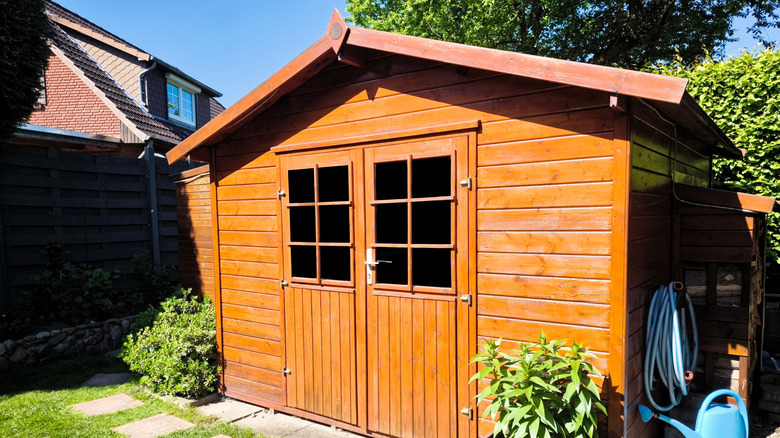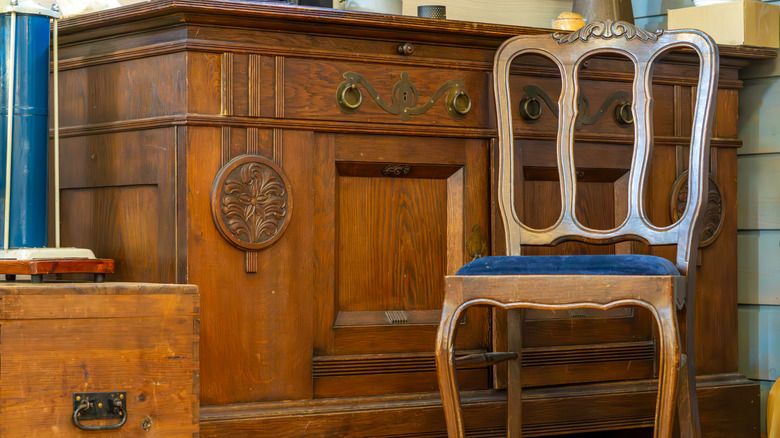The Type Of Furniture You Should Avoid Storing In Your Outdoor Shed At All Costs
Outdoor sheds are incredibly useful storage spaces, providing a space to safely store garden tools, furniture and equipment. But if you're lacking in space in your home, it can be tempting to see your shed as ideal for storing household furniture. Wood furniture is a warm trend that will never go out of style, and many people have heirloom pieces they want to keep or furniture restoration projects they're working on and these all need somewhere to live. But, tempting as it may be to consider your shed, there's one type of furniture that should never be stored there, and that's wooden furniture.
Wooden furniture is susceptible to temperature extremes and humidity, all of which can be magnified in outdoor sheds. Storing these delicate pieces outside could damage them irrevocably, so alternative solutions need to be found. Conversely, you can store wooden garden furniture in sheds, as most outdoor furniture has been treated specifically to cope with temperature and weather changes. However, household wooden furniture hasn't undergone the same protection processes, so it isn't suitable to store in a shed.
Storing wooden furniture safely
Shed environments don't lend themselves to preserving wooden furniture. Sheds made of metal, for example, use material that isn't a good insulator, meaning they can be very hot in summer and cold in winter, while plastic and wooden sheds can lack weather resistance. Hotter temperatures can lead to wooden furniture warping or cracking, with the glue that's used in the joints weakening or even melting. When wood is exposed to heat, it expands, and while timber designed to be used outdoors can usually handle this, interior furniture can't. At the same time, damp, wet, or humid conditions can make the perfect breeding ground for mold and mildew, which can also damage delicate wooden furniture. Even with sheds that are somewhat sealed against the elements, there's still the possibility of pests such as termites, ants and rodents nesting in and damaging the furniture.
Instead, look for better alternatives for storage. Spare bedrooms, basements and insulated garages all offer a safer option, or you could consider renting a storage unit it you want to keep the furniture long-term. If you're not planning on using the pieces in the near future, you could also look at dissembling pieces as much as possible so that they take up less storage space. When taking the furniture apart, be sure to store any smaller objects such as screws in labelled zip lock bags so you don't lose them later, one of the sensible hacks to make moving bulky furniture easier. For those with an artistic bent, you could also look at creative ways to repurpose old furniture so that these pieces work in your home.

